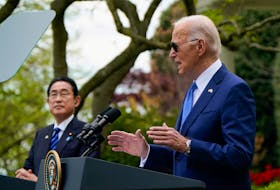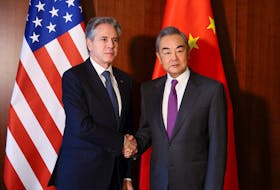GANDER, N.L.
In bringing down its municipal budget, Dec. 19, Gander councillors debated the merits of passing a stipend increase to help offset an upcoming federal tax on councillor remuneration.
Two councillors – Gina Brown and Oswald Fudge – felt municipal leaders should not be permitted to decide the benefits they receive.
The Central Voice reached out to Dr. Russell Williams, associate professor and head of Memorial University’s Political Science department about this process, as at a glance it can be perceived as a conflict of interest.
Under Newfoundland and Labrador’s Municipality Act, a councillor shall not vote on or speak to a matter if the councillor has a monetary interest in the matter, distinct from an interest arising from his or her functions as a councillor; or if the councillor has a monetary interest directly or indirectly in the matter.
But Williams doesn’t see it that way.
Because there is no outside authority in place to deal with council stipends, he said, the responsibility is placed on council members to make the decision on pay.
“Ultimately, we have to accept that legislators set their salaries,” he said. “The check on that, is if they do something that seems unjustified, the public have the opportunity to remove them in the next election.”
It’s an issue all levels of government face, and Williams said it can result in a variety of approaches being taken to help support the decision-making process.
One such way is an independent review process. For example, Newfoundland and Labrador released a members compensation review in 2016 when looking into an increase for its MHAs.
“Essentially, that was trying to depoliticize the process and remove some stigma that they were giving themselves a raise,” he said. “But at the municipal level that is often complicated and hard to do, and it’s an expensive process in and of itself.”
In theory, Williams said it is possible for a provincial government to set rates of compensation through the Municipalities Act.
But such an approach comes with its own set of challenges, as there are varying degrees of compensation throughout the province Some municipalities have little to no stipends in place, while others have higher remuneration rates.
“So, it’s a very thorny problem that is very hard to see an easy solution in how council should handle that problem,” he said.
The associate professor feels the upcoming federal tax only furthers the problem, and Williams isn’t surprised to see municipalities taking measures to mitigate the increase.
“This is a real hit to the people doing the down in the trenches work of managing our municipalities across the country, and I have no idea why the (federal) government decided to do this,” he said.
While federally it might appear the government is saving money, it’s being done so on the backs of taxpayers.
“It’s the great game of Canadian fiscal federalism at work,” he said. “Where the federal government gets to say we’ve improved our bottom-line but ultimately that will be made up by municipal taxpayers somewhere else.”
The Department of Municipal Affairs did not respond to The Central Voice’s information request by deadline.
RELATED:
Gander council expresses differing opinions over $35,000 stipend increase









